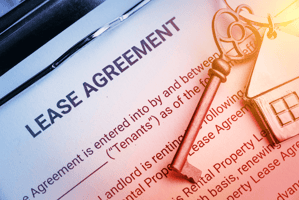Property Management
Leasing Specialist to Property Manager: A Guide
Property Management
Leasing specialists are crucial in the real estate industry — they cover a significant portion of the transaction process that involves making a property purchase. With this, you may be aiming for a job promotion and wish to take on another role in property management involved with high-scale, long-term customer connections and increasing client satisfaction rates. In this article, you will learn the differences between a leasing agent and a property manager and how you can excel in property management employment.
Leasing Specialist vs. Property Manager: Roles and Responsibilities
While the terms “leasing agents” and “property managers” may seem interchangeable, the two differ regarding their responsibilities in the real estate industry. According to MasterClass, leasing agents act as agents between tenants and individuals from whom they lease specific properties, including property owners and management companies. In addition, leasing specialists assist potential renters in filling up tenant vacancies at available properties, with their core concern being successfully making a scale.
In contrast, property managers have a direct role in real estate transactions. According to Investopedia, a property manager is a stakeholder employed by a property owner to oversee and handling day-to-day operations. Their tasks include:
- Supervising maintenance and job orders
- Resolving tenant disputes
- Communicating with the owner regarding the property’s overall health
- Advertising and marketing
Property managers invest in long-term client affiliations by ensuring that tenants are satisfied with the services and amenities provided on the property.
Can a Property Manager Act as a Leasing Specialist and Vice Versa?
Generally, a property manager can fulfill all the roles a leasing agent should satisfy. Leasing managers primarily focus on obtaining a commission from property leasing; therefore, property managers can easily execute tasks related to the placement of tenants. However, the opposite does not hold — leasing agents should not attend to the responsibilities of a property manager, which include maintaining all aspects of the property and dealing with future tenant issues even after the home has already been officially rented. Some property managers are more skilled in leasing arrangements, while others prioritize establishing camaraderie with clients.
How Clients Decide Between Hiring a Leasing Manager Versus Hiring a Property Manager
You must understand the general needs of clients within the real estate investment sphere to succeed in property management. Property investors often assess their overarching goals to determine whether they should hire a leasing specialist or request more comprehensive services from a property manager. For example, a client whose primary purpose is to rent their home to tenants under their direct supervision would benefit from employing a leasing agent. In contrast, investors who require an independent full-time solution in daily on-the-site management and tenant communication would be more inclined to hire a property manager. With this, some clients also opt to employ both a leasing specialist and a property manager, each with its delineated responsibilities. Overall, investors gain multiple benefits from competent property managers that make the renting process more accessible and cost-efficient and direct them to reliable tenants.
Excelling in Property Management Employment
For you to successfully secure the property manager position through potential job promotion, it is beneficial first to understand the factors that come into play in excellent property management. According to Forbes, obtaining success in property management employment requires years of discipline-shaped experience, a meticulous eye for detail, and a passionate commitment to work responsibilities amid external pressure. Success naturally follows after understanding how to balance multiple property manager duties and produce effective communication channels with investors. Furthermore, a property manager must understand how to attract clients and cultivate interest in potential business transactions.
To maximize your success as a property manager, you must refine specific skills relevant to the high demands of the profession. Time management is one of these crucial skills; interactions with potential clients, property owners, staff and personnel, and tenants occur each day. As such, you must know how to balance your duties and keep yourself consistently well-informed about technical property details. Moreover, you must learn to create contingency plans for emergencies. It is inevitable for unforeseen challenges and risks to arise, so competent property managers can prepare for setbacks and preserve professional trust and dependability.
Essential Qualities of a Good Property Manager
Transitioning from a leasing agent to a high-performing property manager entails developing several essential qualities for sustained career growth and development. The following is a list of traits you should embody to succeed in property management employment.
Extensively Knowledgeable About the Local Market
According to McGrath, competent property managers must know the different characteristics of properties generally found within the local area, including rent value and demand for tenants. Thus, you should learn how to reach out to stakeholders with individualized marketing campaigns.
Highly Communicative and Approachable
Meaningful communication is crucial for a property manager, as the role involves being the first contact point to emerge between landlords and tenants. You should learn how to balance being logical and emotional in dealing with everyday issues on the property.
Meticulous and Time-efficient
Good property managers know how to retain a high level of precision even when handling the responsibilities of multiple properties all at once. To streamline job processes, you need to develop systematic solutions, such as utilizing property management software by ExactEstate.
Firm, Assertive, and Resolute
Lastly, a property manager should be stern and know how to negotiate in managing issues related to property care. These problems may include tenants not paying rent on time or neglecting the overall state of the property.
Steps You Can Take To Be an Effective Property Manager
To further strengthen your skills and experience dedicated to the property manager position, there are several steps you can take related to effective property management practices. Not only will these measures boost professional credibility, but they will also ensure client satisfaction with the way services are handled.
Obtain Higher Education and Training
You can increase your practical experience in property management by pursuing advanced credentials. These training programs include Certified Property Management (CPM) and Registered in Apartment Management (RAM).
Have a Schedule for Regular Property Maintenance
As a property manager, you must dedicate some hours to regular inspections and interior and exterior repairs to maximize the life of the property. In addition, ensure you instruct tenants regarding maintenance and cleaning procedures assigned to them.
Utilize a Data-based Approach
Updates on critical data analytics, such as property value, occupancy rates, rent percentages, and other market trends, are essential for property owners to manage their investments strategically. You should frequently offer new and relevant information about current services and suggest possible solutions to improve the property’s market value.
Maintain Linkages With Key Stakeholders
Connections are essential in the modern, fast-paced world. As such, you must form and regulate relationships with professionals such as contractors and real estate owners to promote efficient property management.
Final Words
For current leasing specialists, undergoing a job promotion to become a property manager involves significant changes in personal work ethic. To increase levels of success, you can use property management software built by ExactEstate, a company geared toward the prosperity of your business. Request a demo today to learn more about the software and how it can help you in your career goals.


